The Horizons team features many influential Twitter users. This curates a wealth of insights, knowledge, and information about transformation in health and care from other thought leaders across the world. (Tip: to read an article or watch a video mentioned in a tweet, click on the blue text. To view the original tweet, click on the image).
The Big Conversation - #ImprovingTogether


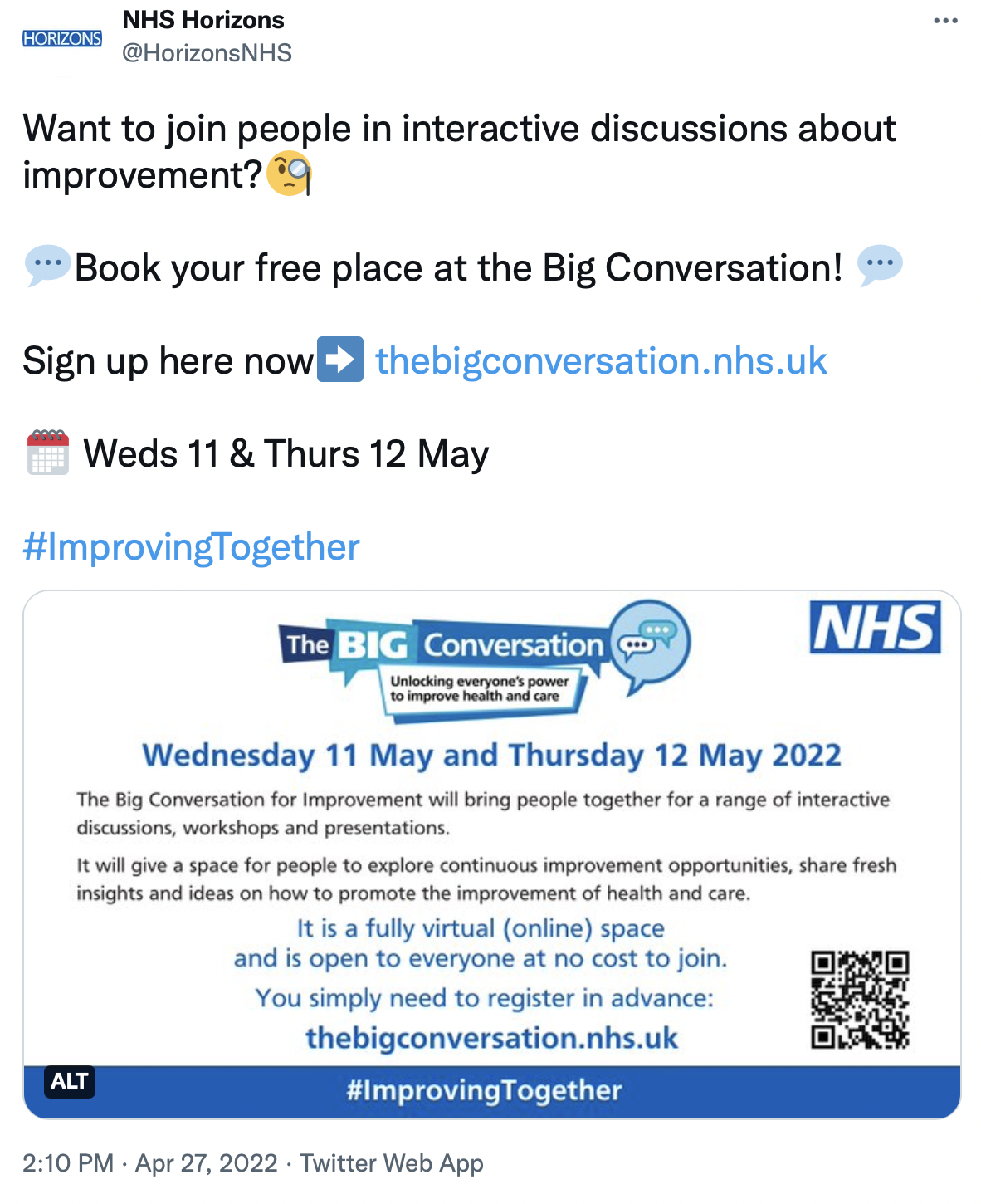
Did you vote in the #ImprovementMethodOlympics last August?
If so, you will love the NHS Big Conversation for improvement that's happening 11th and 12th May. It's free, open to all and virtual. Come to as much or as little as you want or can. Click here to register.
#SolvingTogether
On Tuesday this week, the team hosted a #SolvingTogether tweet chat about the Building Better Theatres challenge. Thank you to everyone who shared their ideas! If you'd like to share your ideas on the #SolvingTogether platform, click here.

Below are some examples of the brilliant contributions sent during the #SolvingTogether tweet chat:

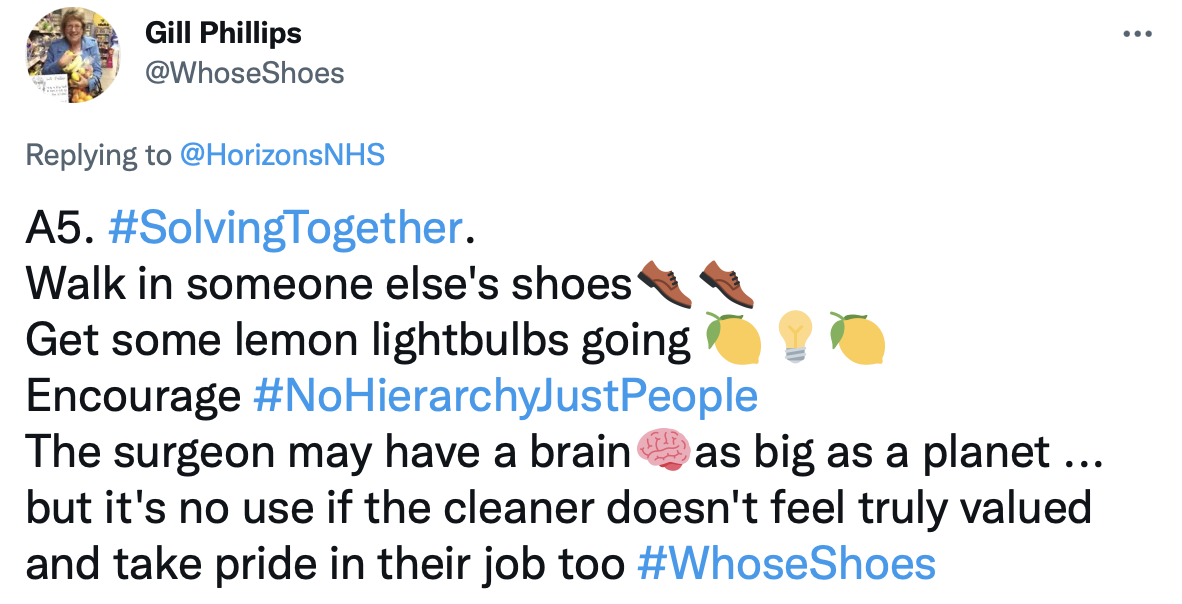


#OurNHSPeople


#StartWithPeople


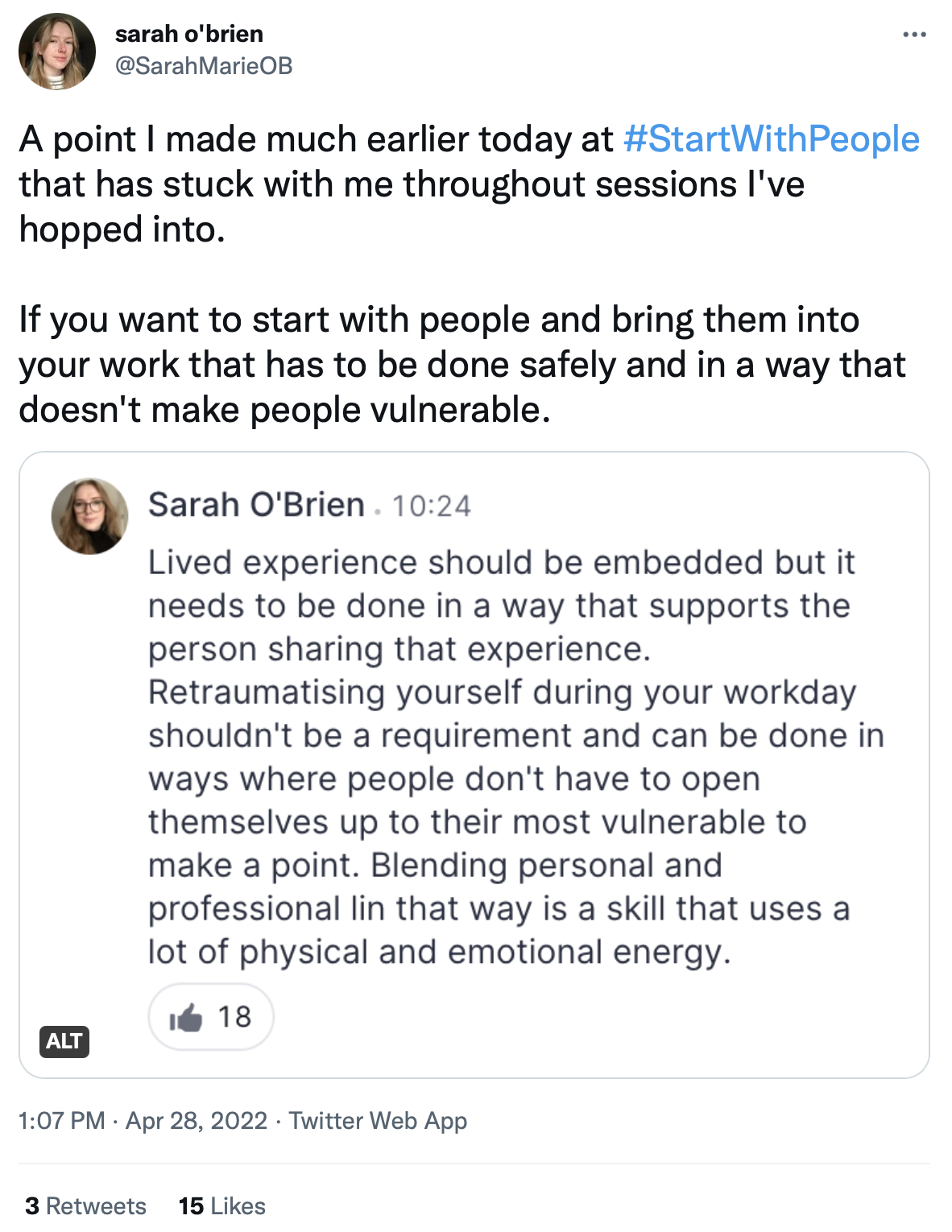
#StayAndThrive
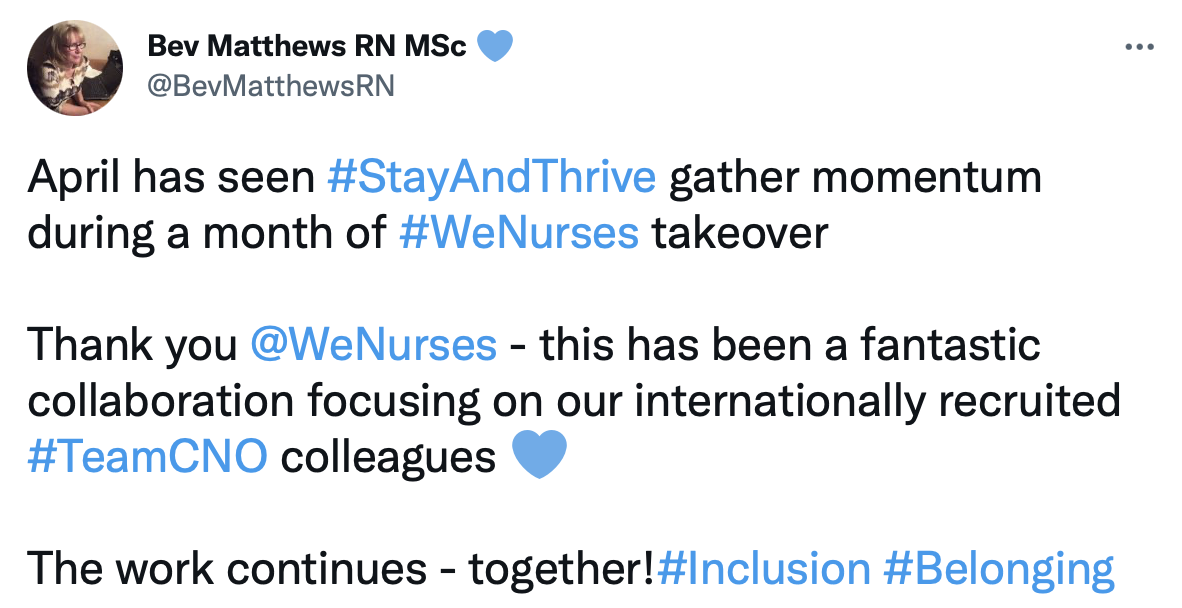
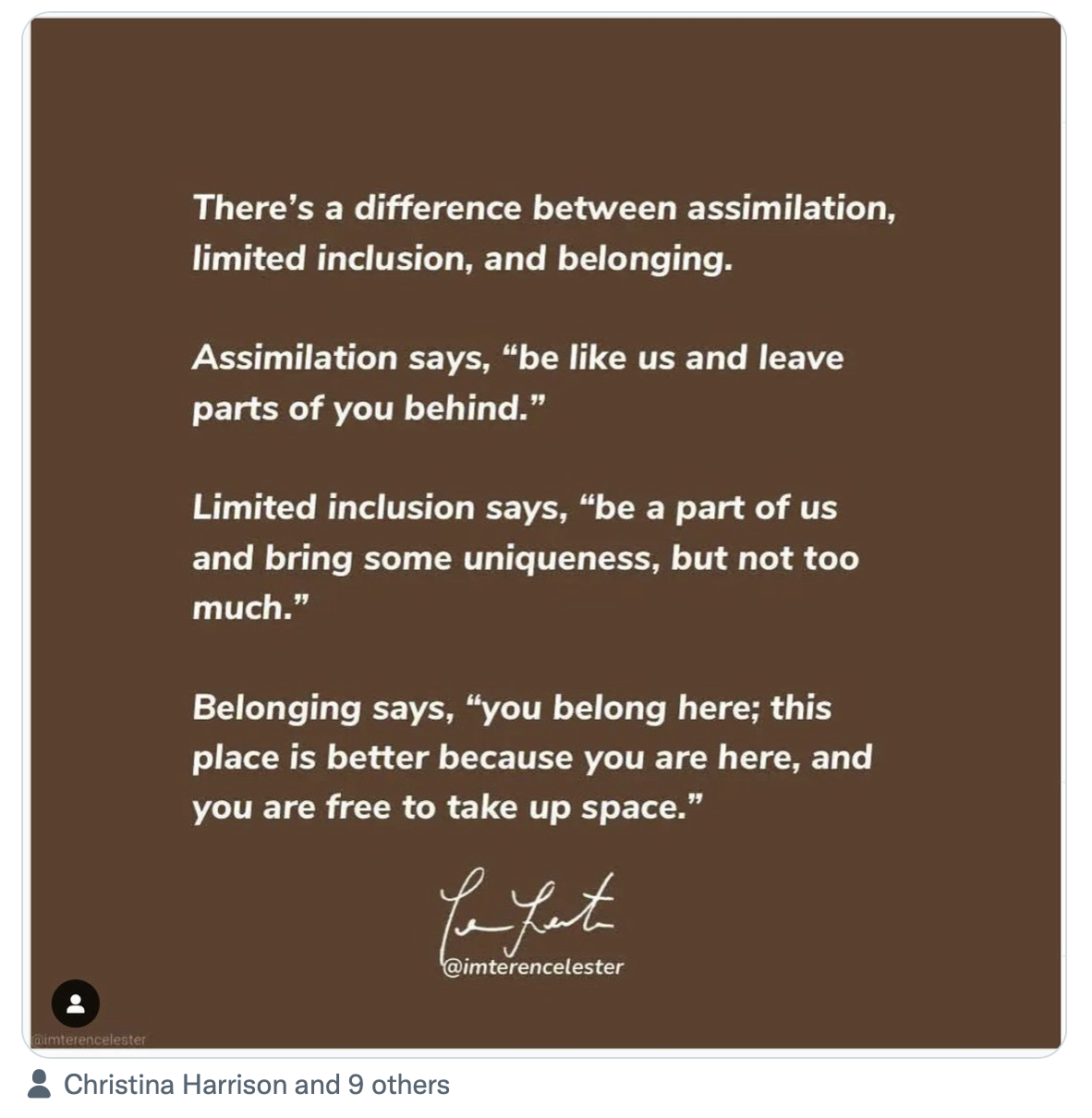

Wellbeing
Now, more than ever, people need to feel a sense of connection at work. To be effective leaders, we have to care for and be connected to the people we lead. We must invest in understanding them and their lives. Empathy is what fuels connection. For more insight on this, click here to read Amy Federman's article ‘Empathy Is the Secret Source of Connection’.
Here are 4 steps to build your own emotional intelligence and be a better leader, partner and team member:
- Control/manage your own behaviour
- Know yourself and your core feelings
- Become socially aware and understand others
- Work together with others to avoid conflict
Our time and energy is finite. If we agree to undertake a certain task, it means that we have less time and energy for other tasks, that may be more important to us or achieve more in the longer term. Every time we are asked to take on a new task, we should ask ourselves six questions: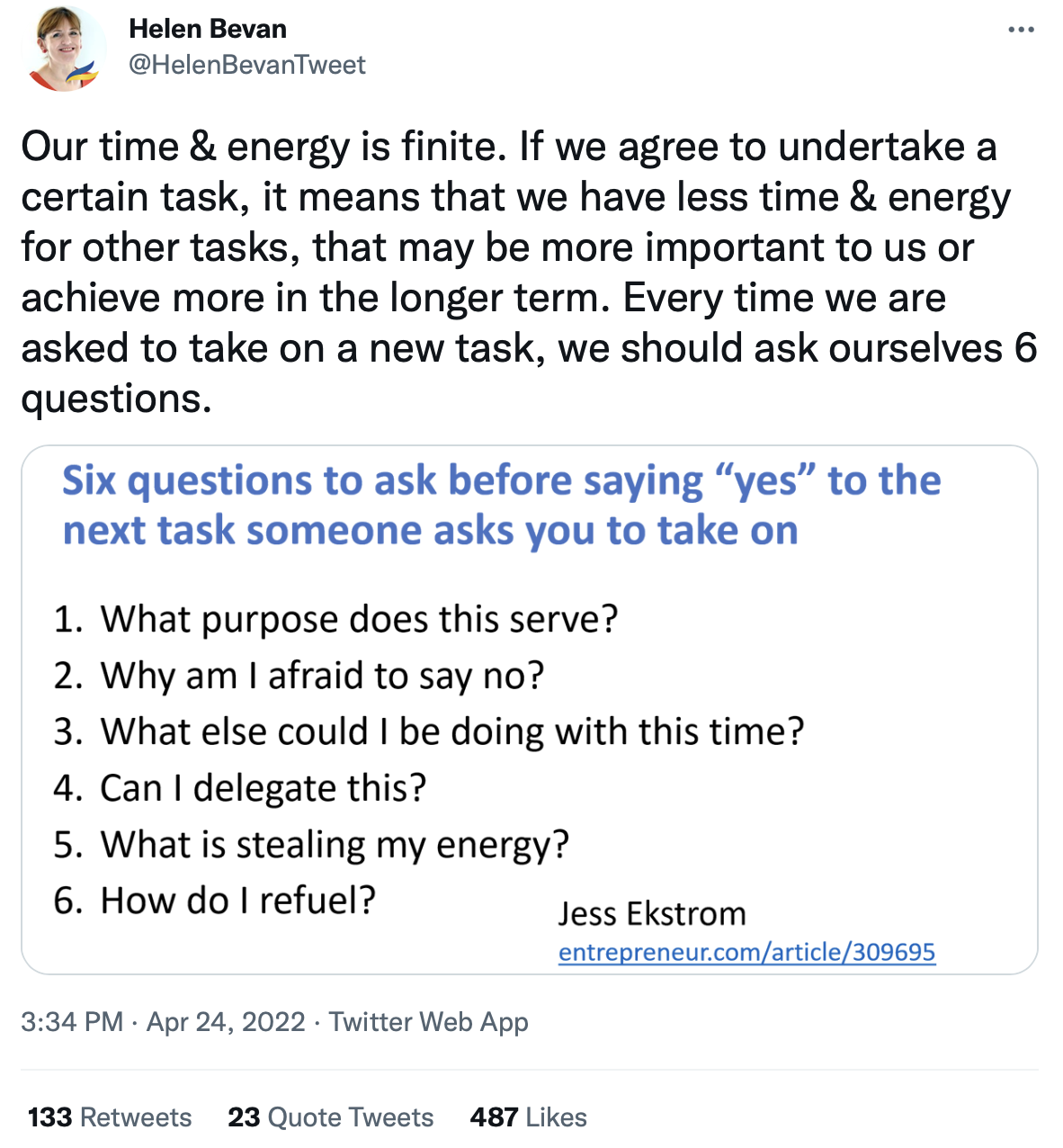
The brilliant @tnvora has turned this list of "6 questions to ask before saying "yes" to the next task someone asks you to take on in" into a sketchnote. It's worth printing this out to reflect on in real time the next time someone asks you.
When social connections are strong and numerous in organisations and systems, there’s more trust, reciprocity, information flow, collective action, productivity and better results. Exemplary leaders encourage the heart as a key part of their role. For more information read 'Encourage the Heart to Build Community and Achieve Results' by clicking here.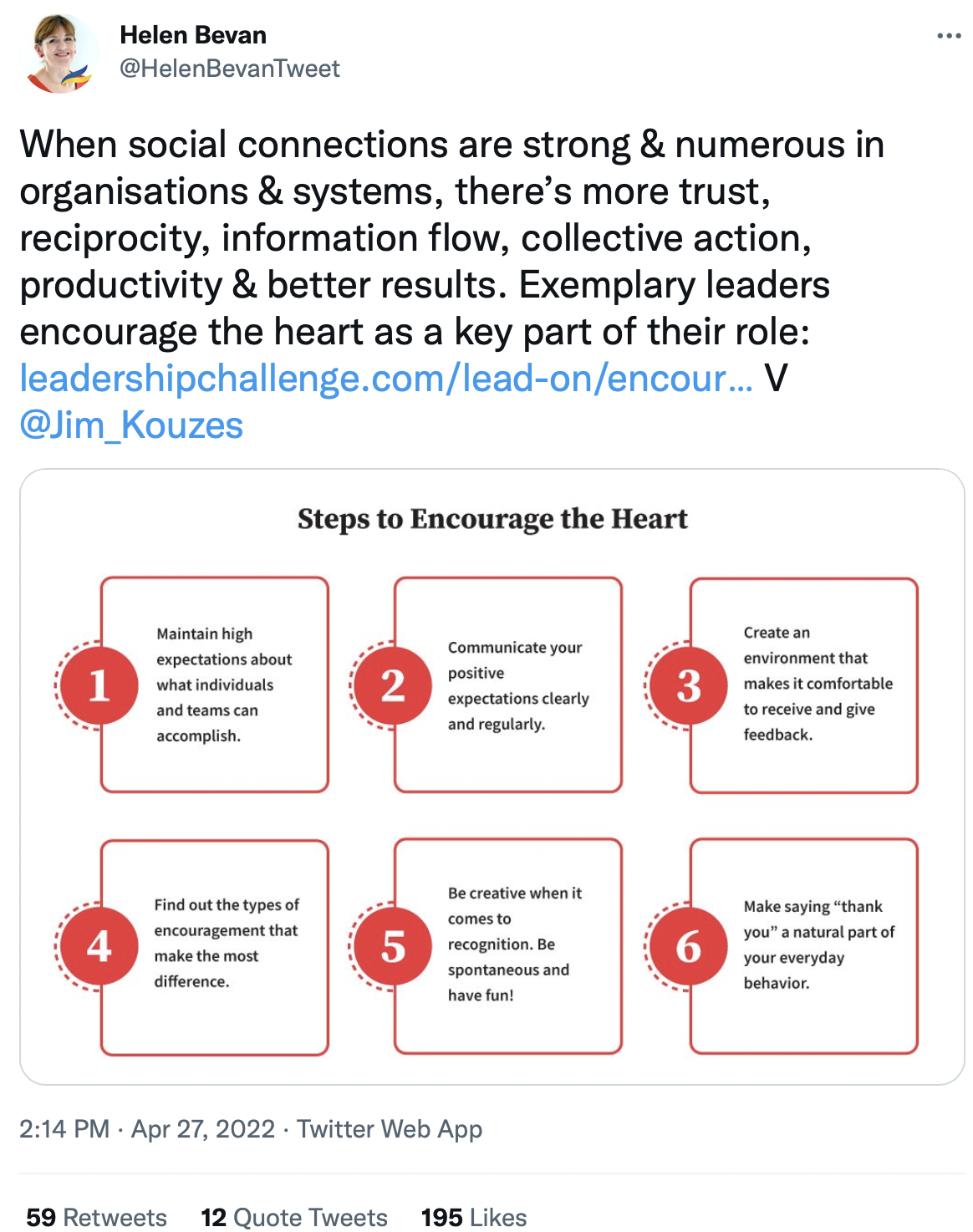
New research from @AmyCEdmondson. We assume that diverse teams perform better than homogenous teams but often diverse teams perform worse. To unlock the potential of diverse teams, leaders must focus on building psychological safety. Read more on this by clicking here.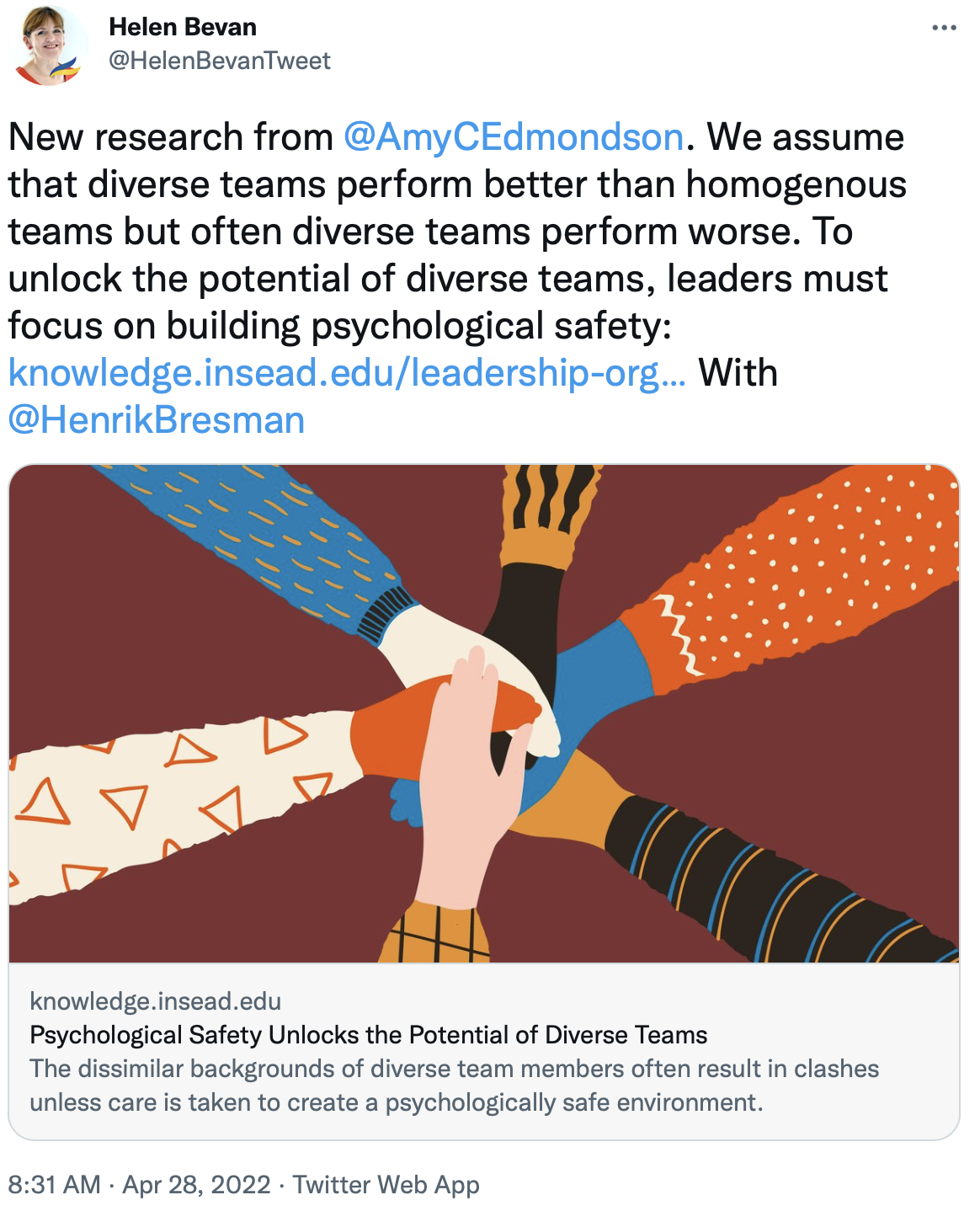
When Helen thinks back over her 40 year career, the best, most impactful times were when she had a boss who understood her & who believed in her. Maybe as leaders, we should all aspire to be that boss that others remember. Sketchnote by @anujmagazine based on a tweet by @ValaAfshar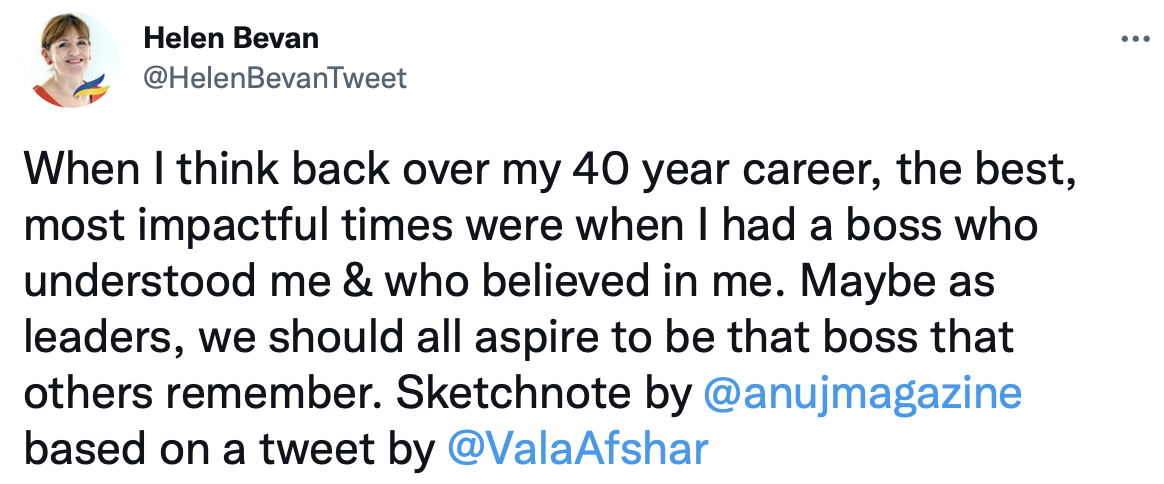
Improvement
If we want to make change happen in the world, we have to connect with others at the level of emotions through values. That's why listening and understanding values are key to change. Values are deeply personal. Some superb "values" graphics by @voinonen. Click here to read 'What are values?'.
Our influence as leaders of change depends on our ability to create reach for our ideas. Reach is not just about engaging the biggest possible audience for our work. It’s also about creating a positive lasting impact as a result of our efforts. For more insight on this, click here to read @tnvora's blog 'Expanding the REACH of your Ideas'.
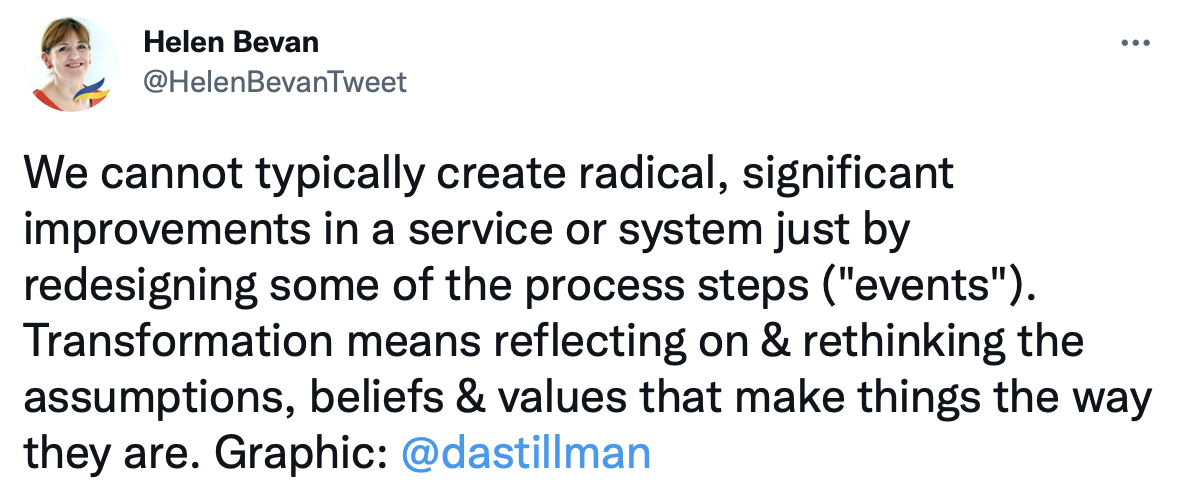

"Abstraction laddering" is a technique to get a group of people to consider the why, what and how we are seeking to do, with equal focus. There is also a link in this article to a fantastic set of templates for conversations for change. Click here to read the article.
The Early Learning Communities (ELC) programme led by @savechildrenuk and @CollaborateCIC is demonstrating innovative & effective methods of system change. System leaders in health & care can learn from the ELC and adapt these approaches to their own context. Read more. 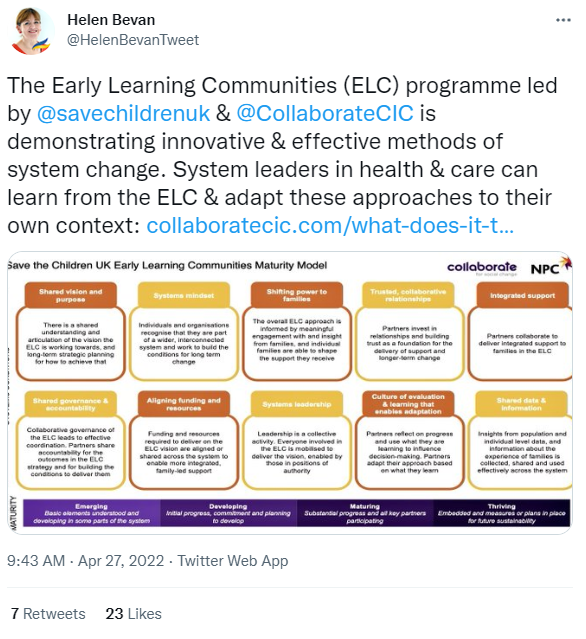
Here are 3 principles for making better decisions:
- Resist premature intuition and use independent criteria to structure your decision
- Take an outside view based on a class of cases similar to this one
- Seek the judgement of a wise crowd
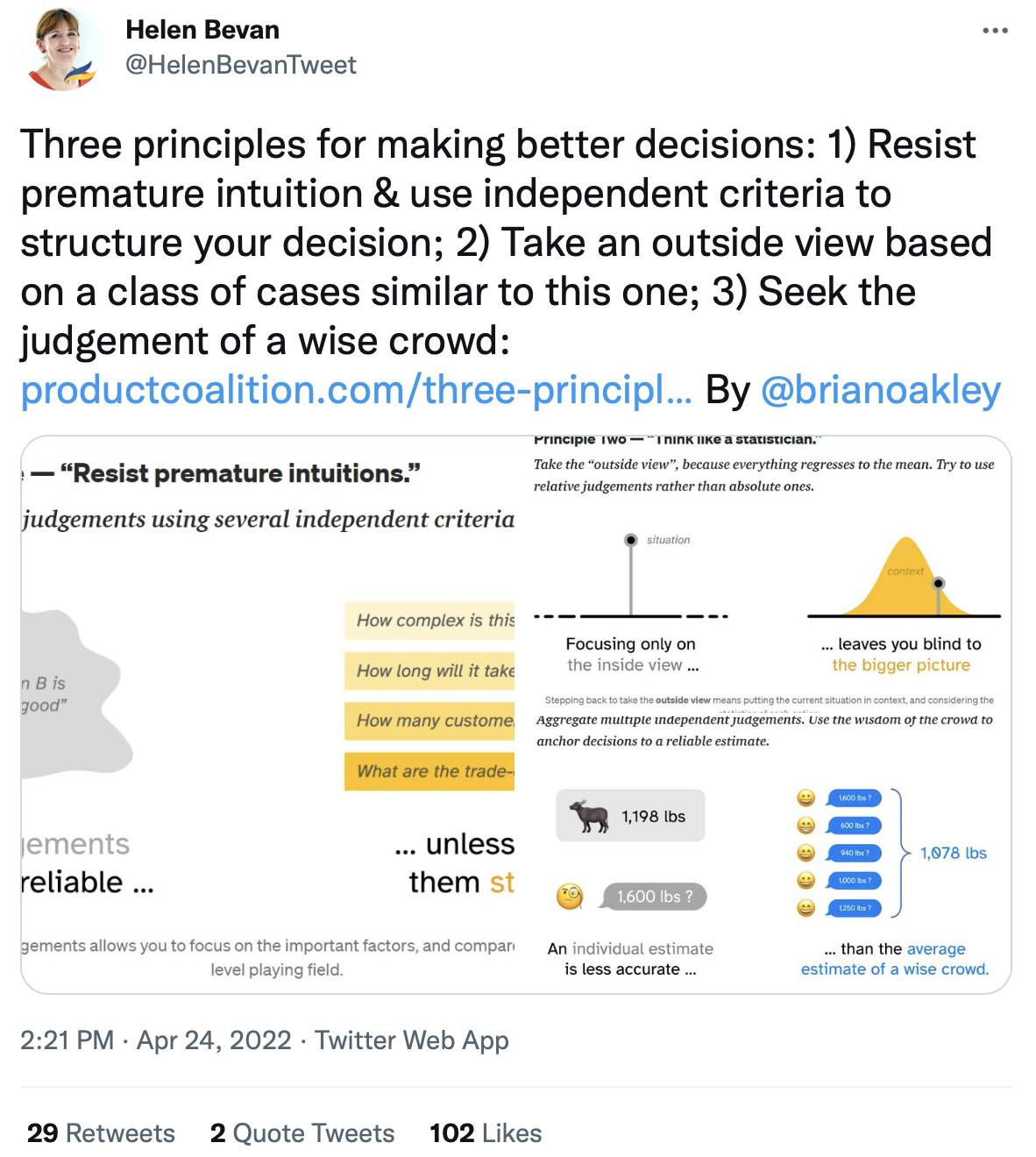






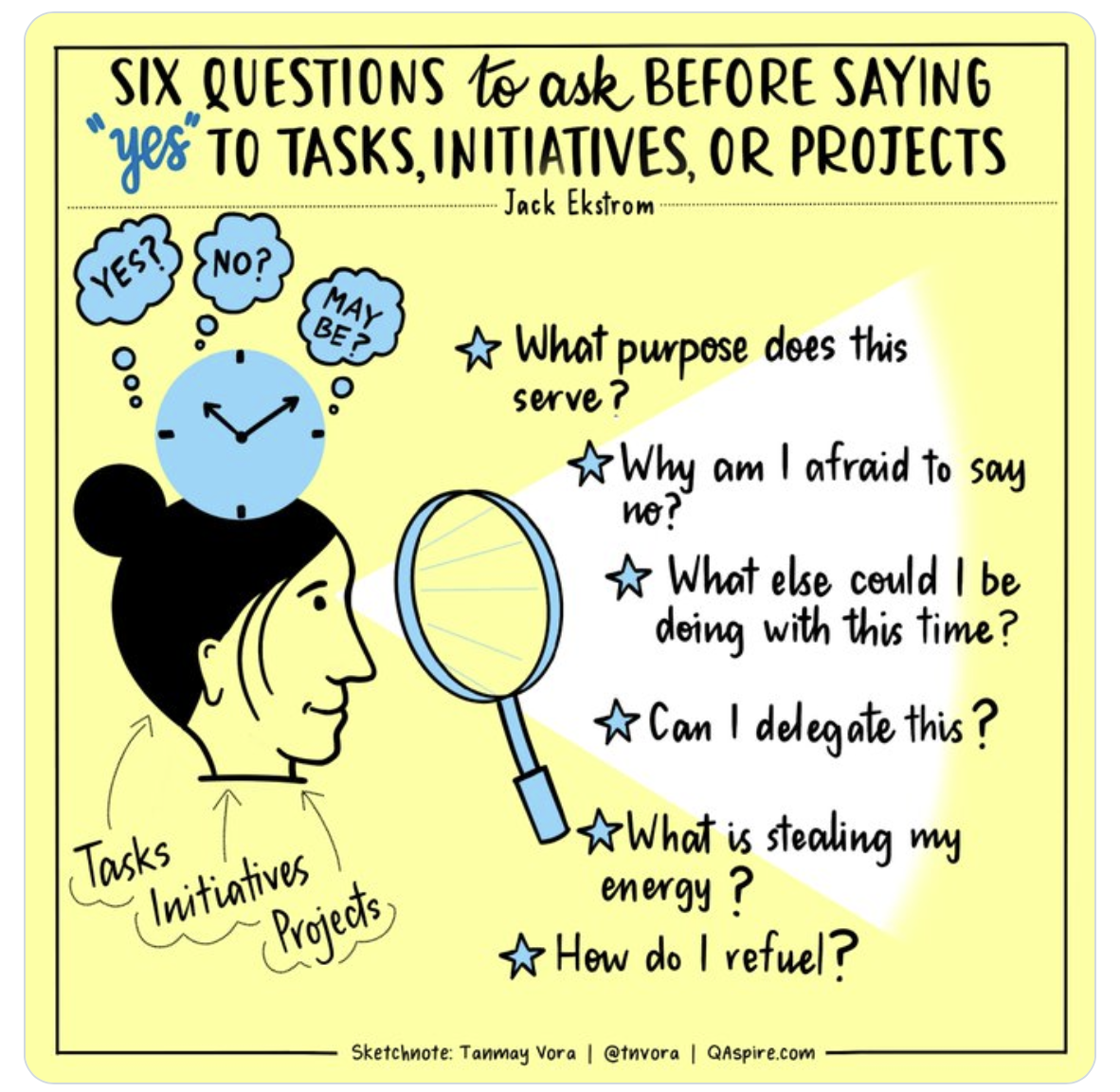


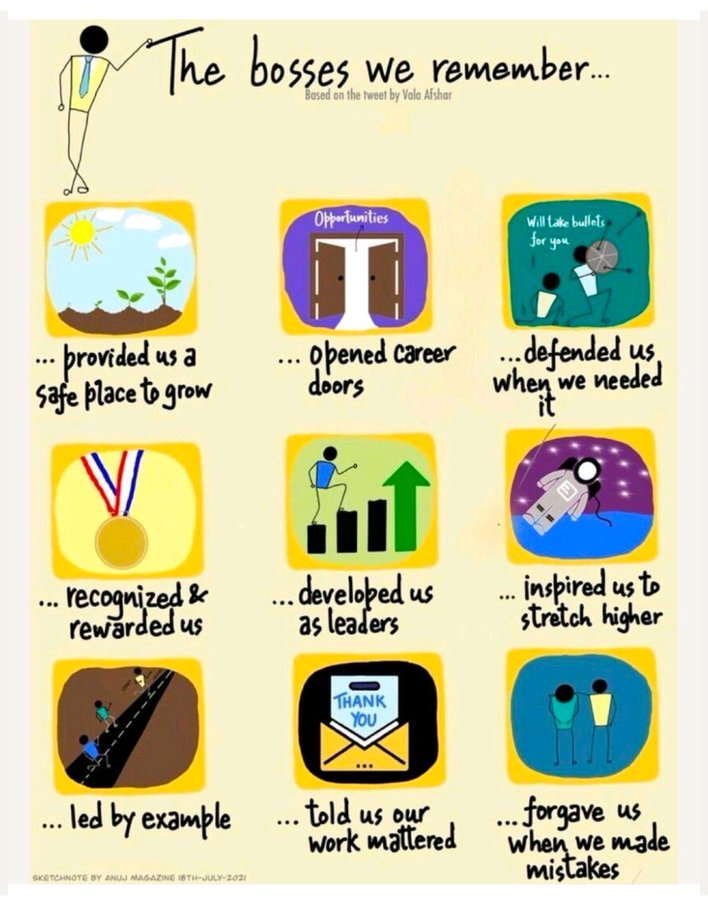

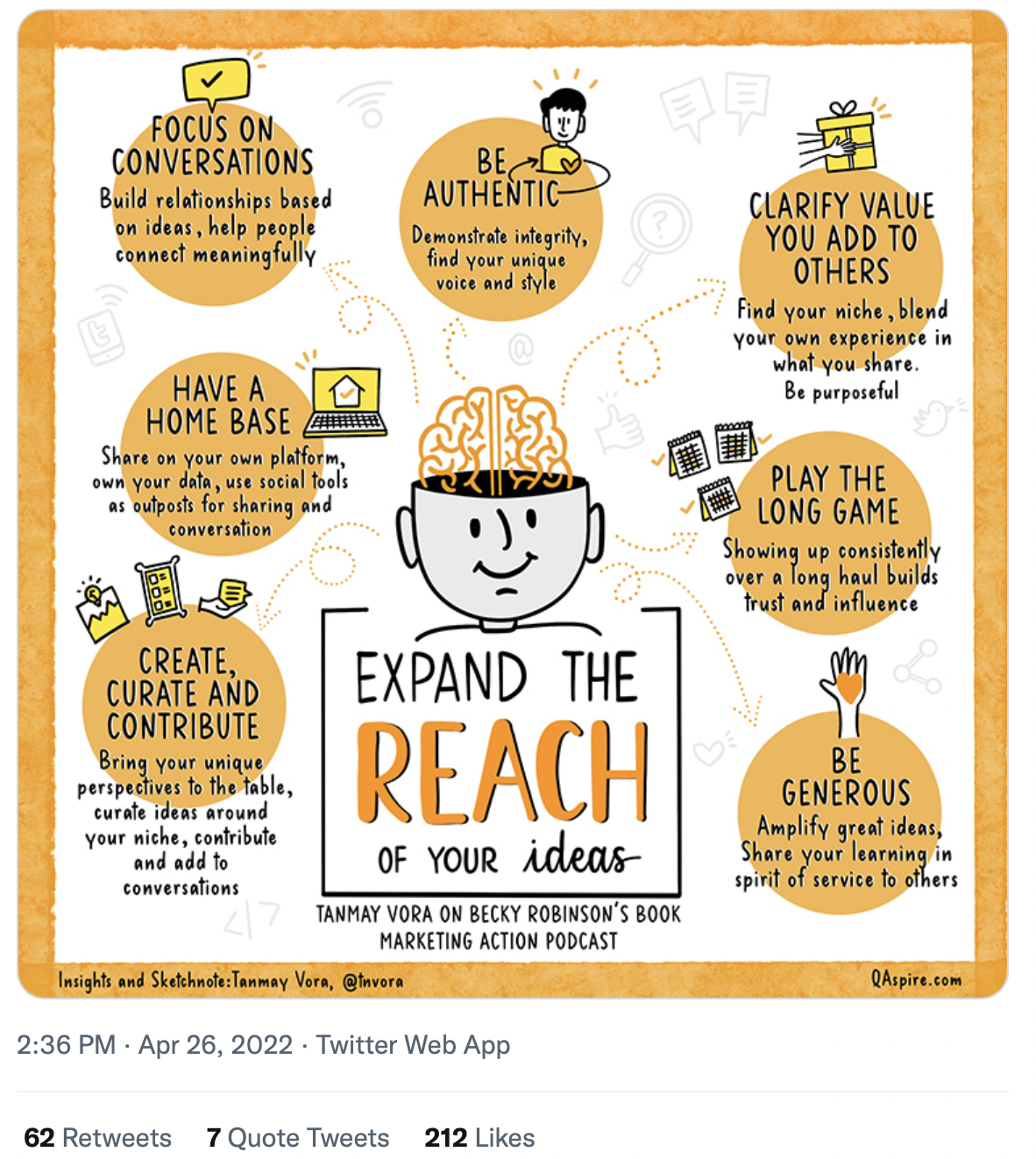

/Passle/5a5c5fb12a1ea2042466f05f/MediaLibrary/Images/6168334917af5b10f4bf1d30/2022-04-14-15-27-52-040-62583d78f636e9115805b2d5.png)
/Passle/5a5c5fb12a1ea2042466f05f/MediaLibrary/Images/6168334917af5b10f4bf1d30/2022-08-05-09-59-36-465-62ecea08f636e906acfed639.jpg)
/Passle/5a5c5fb12a1ea2042466f05f/MediaLibrary/Images/6168334917af5b10f4bf1d30/2022-07-28-14-57-17-405-62e2a3cdf636e9180c9835cb.png)
/Passle/5a5c5fb12a1ea2042466f05f/MediaLibrary/Images/6168334917af5b10f4bf1d30/2022-07-20-10-16-56-533-62d7d618f636ea07987f6668.png)
/Passle/5a5c5fb12a1ea2042466f05f/MediaLibrary/Images/6168334917af5b10f4bf1d30/2022-07-15-09-55-32-858-62d13994f636ea1398e71aa9.jpg)